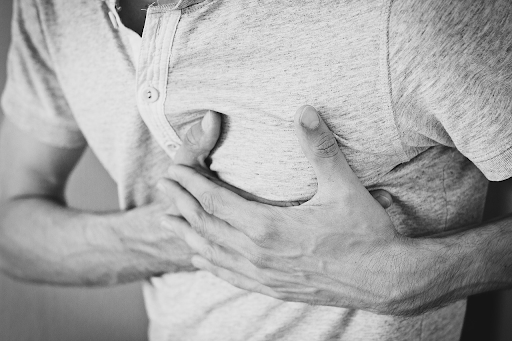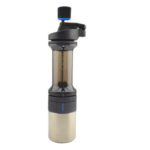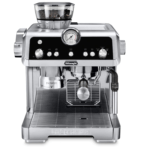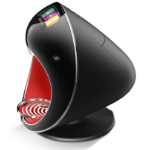Can Caffeine Cause Chest Pain?
Caffeine has a lot of perks (pun intended) like improved focus and decreased fatigue. However, there are also downsides to drinking too much of it, like its addictive tendencies or feelings of jitteriness. But, can caffeine cause chest tightness?
While chest pain isn’t directly caused by drinking a tall glass of coffee, there is a connection between the two. Research shows that plain black coffee daily is good for the heart, among other benefits. However, too much caffeine intake can negate these benefits.
Wondering about the effects caffeine has on the heart? Want to learn how much is too much? Read on. We’ll cover this and more.

The Effects Caffeine Has on Your Heart
Why do so many of us drink a cup of joe on the regular? The most common answer is because it wakes us up and serves as a pick-me-up. The more technical answer, however, is that it stimulates the central nervous system and the acid in our stomachs. This increases blood pressure and, in some cases, makes the heart beat faster.
Typically, those that experience chest pain from caffeine are those who are sensitive to caffeinated drinks. How? If the heart is beating faster than usual and blood pressure is high enough to decrease blood flow to the heart, the effect is likely to be chest pain.
However, these effects aren’t likely for most people. Most times, chest pain after drinking coffee or tea results from acid indigestion. If you’re someone with caffeine sensitivity and are trying to cut back on coffee, you don’t need to quit Starbucks altogether. Instead, opt for less caffeinated beverages. Here is a list of their most caffeinated beverages.
What Foods and Drinks Contain Caffeine?
The most commonly caffeinated beverages are coffee, tea, energy shots, and soda. They all contain different levels of caffeine, but nonetheless, it’s there. Some foods contain caffeine like chocolate and some drugs (think pain relievers). When in doubt, check the list of ingredients before taking medication, as they may contain high amounts of caffeine.
To give you an idea, here is the caffeine intake you can expect from the following drinks and foods:
- Coffee: Anywhere from 102 to 200 mg
- Espresso: Anywhere from 240 to 720 mg
- Energy drinks: Anywhere from 50 to 160 mg
- Soft drinks: Anywhere up to 40 mg
- Chocolate: Anywhere from 15 to 35 mg
How Much is Too Much?
If you’re drinking more than 400 milligrams of caffeine a day, you’re drinking too much. Four cups of coffee or caffeinated beverages a day is safe for adults. This is equivalent to:
- 4 cups of brewed coffee
- 10 cans of coca-cola
- 2 energy shot drinks
Keep in mind that the actual caffeine content in these beverages varies, so you always want to look at the nutritional facts – especially for energy drinks.
What does too much caffeine feel like? There are several unpleasant symptoms like nervousness, insomnia, heartburn, headaches, or a rapid heart rate. You also want to remember that everyone’s body is different; therefore, some people will have a lower tolerance while others caffeine sensitivity is minimal. It truly varies from person to person.
Is Caffeine Dangerous?
The short answer? Yes, it can be dangerous for some people. Aside from those with caffeine intolerance or sensitivity, other groups are vulnerable to experiencing negative effects. These include:
- People with insomnia
- Pregnant or breastfeeding women
- Children and teenagers
- Those who experience anxiety
- Anyone with acid reflux symptoms
- People who have ulcer disease
Let’s take one of the most caffeinated beverages, for example – coffee. This drink increases the production of cortisol in the body. Cortisol is a stress hormone responsible for triggering the fight or flight response when there’s perceived danger. It suppresses bodily functions to respond swiftly to danger and stress.
Combining coffee with some medications is more likely to give you chest pain and tightness. Avoid taking over-the-counter decongestants with caffeinated drinks like energy drinks or coffee. Combining the two can lead to unpleasant side effects. If you’re unsure of the ingredients your prescribed medication contains, get in touch with your doctor.
Final Thoughts
Generally, you should never have chest pain from caffeine. If you do, it’s likely due to an underlying issue like those mentioned above. If you’re someone who never drinks caffeine, has insomnia, or has an ulcer disease, avoid caffeine altogether.
If you have persistent chest pain or discomfort, see a doctor immediately. They’ll be able to diagnose the cause and tie the connection between caffeine and chest pain if there is one. Until then, have peace of mind that coffee doesn’t cause chest pain – it’s almost always the cause of a preexisting condition or underlying issue.





